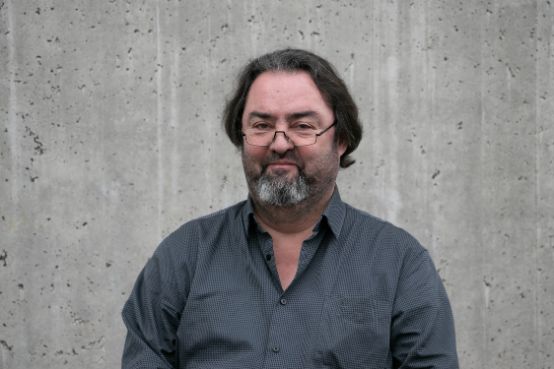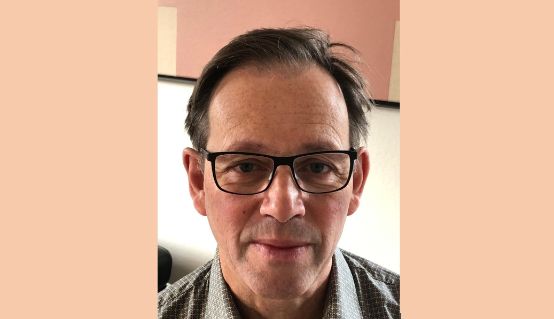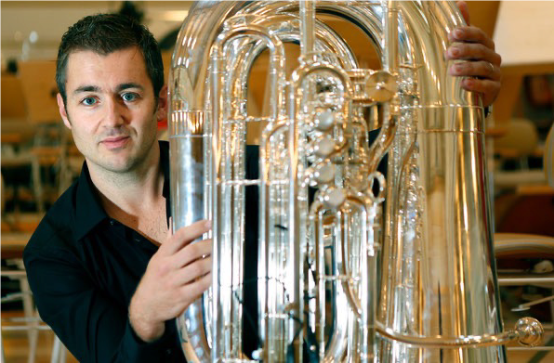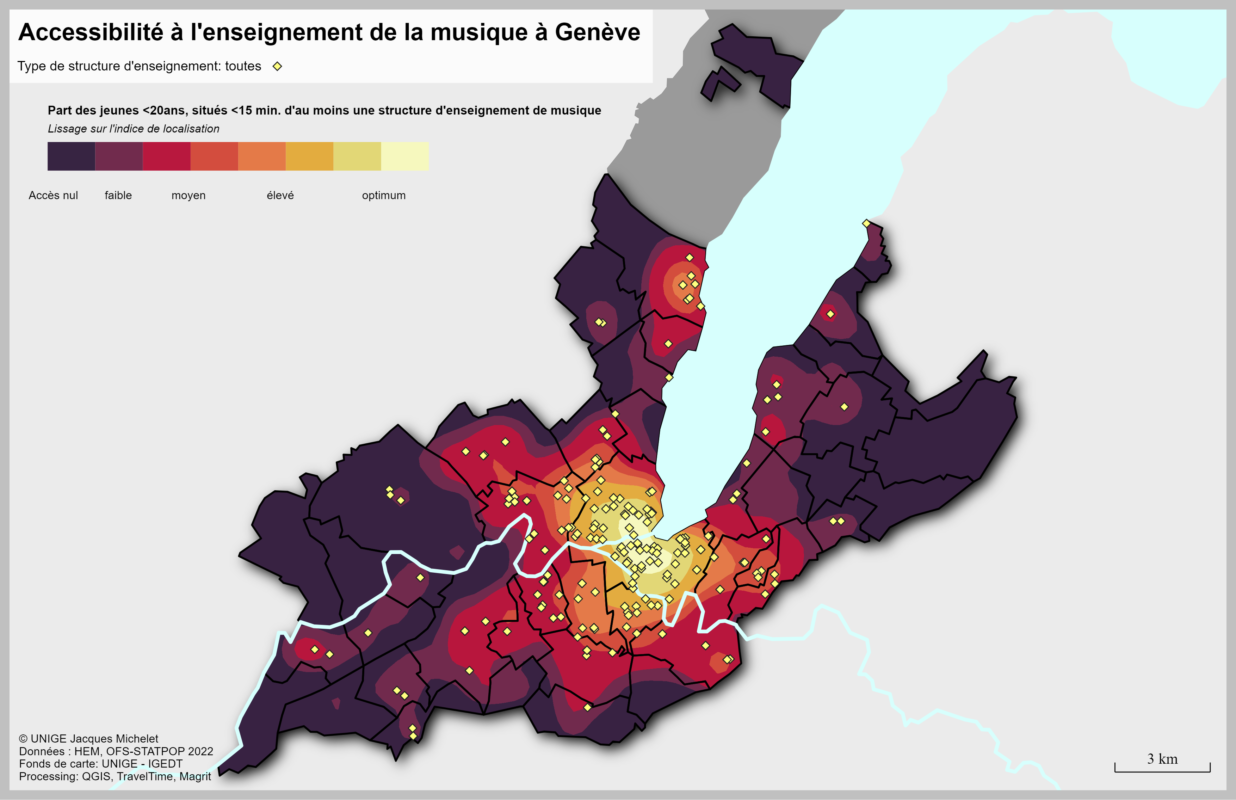Interview with outgoing Central Committee members
The three outgoing members of the Central Committee - including the two co-presidents - told us about their experiences at the head of USDAM, the changes in musical life and their personal futures.
Alain Pasquier
Alain Pasquier studied trombone at the Basel Conservatory and the Cologne College of Music. In 1984, he played in the Biel Summer Orchestra organized by USDAM, and in 1991 was trombonist with the Lucerne Festival Orchestra created by USDAM. From 1982 to 1988, he was trombonist with the Basel Sinfonietta. For over thirty years, he has been solo trombonist with the St. Gallen Symphony Orchestra, and also trombonist with the St. Gallen Brass Quintet. Active on the USDAM Central Committee since 2011, he is Co-Chairman from 2020 to AD 2022.
What stood out for you during your years on the Central Committee and then as co-president?
Alain Pasquier: As a member of the CC, I've always found exchanges with colleagues from other sections very interesting and instructive. Then, as co-chairman, I was particularly impressed by the close collaboration with Beat Santschi, Jessica Frossard and Patricia Bühler, all three of whom do an outstanding job. Meetings with representatives of related associations such as orchester.ch, Sonart, SSPM, DACH international and FIM were also always fascinating. In terms of events, I'd like to mention the USDAM centenary celebration in 2014 at the Zurich Opera House, and the recent creation of the Fribourg section.
Have you noticed any changes in the orchestras since you started out?
Since the end of 1988, when I became a trombonist with what was still called the "St. Gallen City Orchestra", colleagues have been replaced in over 60 positions. Most of these were due to natural retirement, but not all. Naturally, this has brought many younger colleagues into our orchestra. Although I believe that the best musicians have been playing at a very high level for a long time (Heifetz, Holliger, Pollini, Maurice André and many others form a kind of eternal prize list for me), the top has certainly widened as a result of the greater number of music students. The advantages are many, especially for smaller orchestras.
What are your plans for the next few years?
I'm certainly enjoying my remaining time with the St. Gallen Symphony Orchestra. At home, I have a library of around 2000 books just waiting to be read. At an average of 30 books a year, it will take me about 66 years to get through it, so that shouldn't be a problem... To this will be added visits to towns and museums, good meals and wine-tasting with good friends.
-

- André Pasquier
- Alain Pasquier
David Schneebeli
David Schneebeli, born in 1961, hails from Zurich, where he received his musical training with Manfred Sax. After further studies with Klaus Thunemann in Hanover, he was appointed principal bassoonist of the Basel Radio Symphony Orchestra in 1985. Since the merger of the Basel orchestras in 1997, he has held this position in the new Basel Symphony Orchestra. He also plays regularly with the Zurich Chamber Orchestra, as principal bassoonist. An essential complement to his orchestral activities over the years, he has also been a member of several chamber music ensembles. David Schneebeli was active for many years on the orchestra's committee, and has always been committed to USDAM. From 1995 to 2004, he was president of the Basel section. In 2008, he was elected to the Central Committee. Together with Alain Pasquier, he was Central Co-President from 2020 until their joint resignation in summer 2022. David Schneebeli has represented the professional sector on the Swiss Music Council Committee since 2011.
What stood out for you during your years on the Central Committee and then as co-president?
David Schneebeli: To tell the truth, one observation I could well apply in this context is that there are no permanent solutions to many fundamental issues. Another experience that has particularly impressed me is that, as a relatively small union, the USDAM often needs to build alliances to achieve its goals, and as a sincere and reliable partner must always earn the respect of its opposite number - even if that person or organization is unfavorable.
Have you noticed any changes in the orchestras since you started out?
Of course, since we're talking about a period of over 35 years! What seems to me to be the most important change is that, from now on, you can only claim respect for your own performance, and no longer on the basis of seniority. There are no more sinecures. What's more, the profession demands greater flexibility on several levels: in terms of style or personal availability, for example. The relationship between conductors and orchestras has also changed: we work in a more collegial and less hierarchical spirit.
What are your plans for the next few years?
Over the next few years, I'll be trying to maintain my instrumental level and make the most of the extra time at my disposal. I hope to be able to experience many more magnificent concerts and quality performances during my last professional years with the orchestra.
-

- Regula Recher
- David Schneebeli
Daniel Schädeli
Daniel Schädeli studied at the Lucerne, Zurich and Bern Universities of Music. Masterclasses with numerous renowned tuba players and a study visit to Chicago rounded out his studies.
As a soloist and chamber musician, he has won international competitions in Geneva, Lucerne, Munich, Passau and Guebwiller. Composers such as Julien-François Zbinden, Jost Meier, Dominique Roggen, Jean-Luc Darbellay and Daniel Glaus have dedicated solo works to him. In addition to his main professional activities as principal tuba player with the Bern Symphony Orchestra and the Gstaad Festival Orchestra, his solo performances and concerts with the Lucerne Chamber Brass and other ensembles such as Festival Brass and Pro Brass, his main interest is teaching. He teaches a professional class at the HEMU Fribourg and is a professor at the Music School of the Wohlen region.
Is there an ideal length of time for participation in the USDAM Central Committee?
Daniel Schädeli: I became involved with the Central Committee after four years as Chairman of the Board of the Berne Symphony Orchestra. From the outset, I set myself a term of 10 years, as I believe it's always beneficial for committees to be renewed - so I'm anything but someone who hangs on to a position.
What has impressed you most during your years on the Central Committee?
Several things stood out for me. On the one hand, it was and still is pleasing to see that we have an active and well-connected association, which can and does successfully defend the rights and working conditions of its members. Ensuring this requires a lot of behind-the-scenes work and networking, which is not visible to most "ordinary" members. We have a professional organization with our formidable secretariat in Zurich and a Central Committee made up of representatives from all regions if possible, and this also seems to me to be the right way forward. I've also been impressed by the personal destinies we've dealt with, within the framework of our foundation, with legal protection and in collaboration with professional lawyers. The coronavirus pandemic was a key moment that kept me very busy, also within USDAM. As a member of the Foundation Committee, I was part of a group that granted emergency loans. Many independent musicians had fallen on hard times. It hit close to home, and I was simply grateful that everything was going well for me and my own family, and that we were able to experience such wonderful solidarity within USDAM.
What are your plans for the next few years?
I now have more time for my family and my own musical projects and recordings, now also as a "Buffet-Crampon" artist, as well as for my new position at the HEMU. I am very fortunate to be able to perform three world premieres by different Swiss composers in the near future, the first at the end of October with the Bern Chamber Orchestra, the others in Basel and Lausanne at the end of the year and at the beginning of 2023. In addition, I play a lot of chamber music in Switzerland and abroad, which for me is the best discipline.
What changes have you felt since the beginning of the 21st century in the way the tuba is perceived?
The tuba is still a young instrument, and is undoubtedly one of the instruments that has developed the most in recent years and decades. I'd also like to contribute to this and continue along this path, discovering new things and enjoying it.
-

- DR
- Daniel Schädeli








